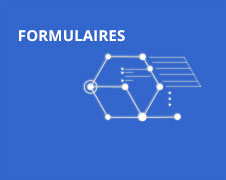Groupe de recherche en illumination et design
Media
La recherche au GRID
© GRID
Projets du GRID avec l’institut Arts Cultures et Technologies de l’Université de Montréal
© GRID
Projet étudiant de 1er cycle
© GRID
Projet étudiant de 2e cycle
© GRID
Projet étudiant de 3e cycle
© GRID
Profile
Affiliations
Research units
- Centre de recherche interdisciplinaire en réadaptation du Montréal métropolitain
- Laboratoire-lumière de la Faculté de l'aménagement
- Infrastructure du Laboratoire FORME – COULEUR – LUMIÈRE
Partner organizations
- PPG Architectural Finishes Inc., Architectural Coatings - AAP (SICO)
- Groupe Lumitech
Team
Directors
At Université de Montreal
- Tiiu Poldma - Directrice
Members
At Université de Montreal
Expertise
Research focus
Les interfaces numériques et réelles entre la lumière, les cinq sens et l’être humain
Les technologies d’éclairage émergentes
Les aspects environnementaux relevant du développement durable et de l’éco-design
L’exploration conceptuelle et théorique, ainsi que la mise en scène de projets académiques
Les interactions et les perceptions de l’être humain en lien avec la lumière artificielle et naturelle
Le développement de thématiques dans lesquelles l’éclairage dynamique et les dimensions humaines sont intégrés à la conception des espaces intérieurs de demain
Le développement de projets multidisciplinaires et interdisciplinaires
Le développement de projets théoriques soutenant la valorisation des liens entre diverses disciplines
Projects and funding
Publications and presentations
Publications
Publications diverses (Une sélection)
*Swaine, B.R., Kehayia, E, Poldma, T, Longo, C, Ahmed, S, Archambault, P, Kairy, D, Fung, J, Lamontagne, A, Le Dorze, G, Lefebvre, H & Overbury, O. (2013; en soumission). “Creating a rehabilitation living lab to optimize social participation and inclusion for persons with physical disabilities.”, Revue ALTER.
*Swaine, B., Poldma, T., Labbé, D., Barile M., Fichten, C., Havel, A. Kehayia, E., Mazer, B., McKinley, P. Rochette, A. (2013 ; en soumission). “What facilitates and limits shopping mall use by persons with disabilities and strategies for improvements: Perspectives from persons with disabilities, rehabilitation professionals and shopkeepers.”, Revue ALTER.
Poldma, T. & Kronish, N. (2012). “Exploring People’s Needs in a Psychiatric Ward: Social Community, Design and the Interior Environment in a Healthcare Setting.” Journal of Design Research, 15 p.
Poldma, T., Bertin, S., Barile, M., Martel, R., Herbane, H. & Artis, G. (2013; en soumission). “Understanding People’s Needs in a Community Public Space : About Accessibility and Lived Experience.” Revue ALTER.
*Poldma, T., Témisjian, K., Duquette, J., Douville, M., Gresset, J., Cataford, G., Tissaoui, L. et McKinley, P. (2012). “The Use of Argentine Tango dancing in an Interior Environment to Enhance mobility and Social Activity in Seniors : A Multi- disciplinary Research Study.” Conference proceedings of the 2012 IDEC Annual Conference, Baltimore, USA.
Poldma, T. (2011). “Considering the Ph.D. in Design: About challenges, definitions and foundations.” In Wachs, M. & Weinlich, D. (Eds), How to Do a Ph.D. in Design, Hochschule Niederrhein - University of Applied Sciences, Hanover, Germany, 2011; 6 p.
Poldma, T. (2011). “The Interior Spatial Environment: Dynamic 0g Environments and Human Places.” Personal and Ubiquitous Computing, Springer Publications, 2011; 15: 539-550.
Poldma, T. (2010). “Transforming Interior Spaces: Enriching Subjective Experiences Through Design Research.” Journal of Research Practice, 2010; 6(2) : 12 p.
Lasalle, V. & Poldma, T. (2010). « La personne vieillissante et son expérience vécue en espace intérieur. » In Negron- Poblete, P. & Séguin, A. (Éds.) Conférence ACFAS 2010 Table ronde Vieillissement et enjeux d’aménagement / regard à partir de différentes échelles, Montréal, QC, May 2010; 9 p.
Butler-Kisber, L. & Poldma, T. “The power of Visual approaches in qualitative inquiry: The use of collage and concept mapping in experiential research.” Journal of Research Practice, 2010; 6(2): 17p.
Poldma, T. (2009). “Learning the Dynamic Processes of Color and Light in Interior Design”. Journal of Interior Design (JID), 2009, 34(2); 15 p.
Rapports de recherche ou publications de recherche
Poldma, T. & Tissaoui, L (2012). Preliminary report on the Pilot Study 1 « Understanding People ‘s Needs in a Commercial Mall, CRIR PSI Project Enabling Environments, CRIR and Université de Montréal, January 2012, 20 p.
Poldma, T. (2012). Preliminary report on the Pilot Study 2 « Accessibility of a Commercial Mall Environment », CRIR PSI project Enabling Environments, CRIR and Université de Montréal, January 2012, 20 p.
Poldma, T. & Tissaoui, L. (2011) Rapport de recherche sur le projet TANGO, Université de Montréal, Montréal, 20 p.
Poldma, T. & Bertin, S. (2010). Lighting Master Plan for the City of Charlottetown. Rapport de recherche pour Homburg, Montréal, Janvier 2010, 20 p.
Poldma, T., & Tissaoui, L. (2008). Rapport de recherche sur l’évaluation du cheminement spatial au Centre de réadaptation Constance Lethbridge : comprendre l’adaptation visuelle des usagers, CRIR, Centre de réadaptation Constance Lethbridge et Université de Montréal, Montréal, 35 p.
Poldma, T., Brack, H., Dastoor, D. (2007). Lighting Study at the Moe Levin Centre of the Douglas Hospital. Analysis Report of the Phase I: Exploration Study of the Effects of Light on Behaviour and Well-being of People with Dementia in a Specialized Environment. Douglas Hospital. Douglas Hospital, McGill University and Université de Montréal, rapport final, 23 p.
Poldma, T., De Grosbois, É. (2007). Lighting Study at the Moe Levin Center of Douglas Hospital. «Analysis Report of Phase 1: Exploration Study of the Effects of Light on Behavior and Wellbeing of people with Dementia in a Specialized Environment», rapport préliminaire, Montréal, 39 p.
Poldma, T. & DeGrosbois, É. (2007). Vers un environnement adapté aux besoins des usagers : Le cas de CSHLD St. Laurent, Phase I. Université de Montréal, Montréal, 34 p.
Poldma, T. & DeGrosbois, È. (2007). Adapting the Interior Environment for the Readaptation Centre Day Programs at the Constance Lethbridge; L’intégration des aspects de l’environnement avec la programmation et espaces pour le programme de relance au Centre de Réadaptation Constance Lethbridge. Centre de réadaptation Constance Lethbridge et Université de Montréal. 20 p.
Poldma, T., Dastoor, D., Brack, H. (2007). Lighting Study at the Moe Levin Center of the Douglas Hospital. Analysis report of Phase 1: exploration Study of the Effects of Light on Behaviour and Well-being of People with Dementia in a Specialized Environment. Final report on the Lighting Study , Douglas Hospital, Moe Levin Centre & Université de Montréal., 23 p.
Communications
COMMUNICATIONS – Livres, chapitres de livres
Poldma, T. (2013; en soumission). Chapitre “The Working interior”. En livre de Thompson, J.A. and Blossom, N. (Eds.)
The Handbook of Interior Design. John Wiley & Sons. 15 p.
Poldma, T. (Ed.; 2013). Meanings of Designed Spaces. Fairchild Books/A Bloomsbury Imprint, New York, 477 p.
Poldma, T., Kronish, N. (2013). “Exploring Peoples’ Needs in a Psychiatric Ward: Social Community, Design and the Interior Environment in a Healthcare Setting”. Journal of Design Research.
Lasalle, V & Poldma, T.(2012). « Chapitre 8: La personne vieillissante et son expérience de l’espace intérieur ». In Negron-Poblete, P. & Séguin, A. (Eds.). Vieillissement et enjeux d’aménagement: Regards à différents échelles. Québec: Les Presses de l’Université de Québec, pp. 193- 211.
Poldma, T. (2011). “Considering the Ph.D. in Design: About challenges, definitions and foundations”. In Wachs, M. & Weinlich, D. (Eds), How to Do a Ph.D. in Design, Hochschule Niederrhein - University of Applied Sciences, Hanover, Germany, 2011; 6 p.
Poldma, T. (2009).Taking Up Space: Exploring the Design Process. New York: Fairchild Books, 282 p.
Poldma,T. (2009). “Sustaining Education: Futuring Interior Design Directions?” In Martin, C. & Guerin, D. (Eds.) The State of the Interior Design Profession, Fairchild Books, New York, 2009; pp 401-409.
Poldma, T. (2008; chapitre de livre et annexe de 24 p.). “The Proposal for a Pluralistic Discourse for Interior Design Education, Research and Practice : Issues, Values and Foundations for the Future”. In Khan, S & Powell, B (eds.) IFI Roundtable Conference Thinking into the Future, Singapore : IFI. pp. 149-172.
Disciplines
- Environmental Planning and Design
- Design
- Interior Design
- Urban planning
- Industrial Design
- Architecture
- Landscape Architecture
- Game Design
- Physical Medicine & Rehabilitation
- Music
- Media and Visual Arts
- Environment and Sustainable Development
Areas of expertise
- Design
- Shape, color and light
- Architectural design
- Interior design
- Industrial design
- Sustainable design (Ecodesign)
- Design and health
- Service design
- Codesign and collaborative design
- Urban design and urban architecture
- Assessment of land use project
- Aging
- Person-environment relations
- User-centered system design
- Exhibit design
- Architecture, landscape, design and urban design competitions
- Interaction design
- Game design
- Workplace design
- Graphic design
- Virtual and augmented reality
- Man-machine interface
- Downtown and commercial district revitalization
- Environnement and sustainable development
- Real estate and urban development
- Regional and community-based development
- Public spaces
- International cooperation
- Aesthetics
- Urban morphology
- Urban landscapes
- Urban vulnerability
- City planning
Aide en ligne pour le profil de votre unité de recherche | Nous joindre
Le Répertoire des unités de recherche est propulsé par les données du ![]() SADVR et est un projet du CENR.
SADVR et est un projet du CENR.


